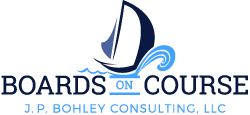Tip #92 Determine Your Organization's "Why," Its Purpose
Having a clear understanding of your organization’s purpose or why it exists is critical to your organization’s success. And, without an understanding of what constitutes your organization’s success, how can you know if you are achieving a worthwhile purpose?
If you don’t have a board policy defining your organization’s purpose, consider developing a results-oriented board policy that defines what outcomes or benefits your organization is to provide and for whom these outcomes or benefits are to be provided. Such a policy focuses on the impact your organization wishes to have (its “why” or reason for being) rather than on current or planned activities, services, or means to be used. When the organization’s board of directors spells out what results it wants the organization to achieve it can then empower management to select activities, services, or means to achieve the board’s desired organizational results. A board’s definition of the organization’s intended impact can promote management accountability and a results-oriented culture for the entire organization.
Within the Policy Governance® system, such a results-oriented policy statement is called an Ends policy. Such a policy deals with three issues: the results or benefits to be produced by the organization, the persons for whom these results or benefits are to be produced, and the worth of such results or benefits. The “worth” component of the policy can address the following two issues: 1) the worth or value of results or benefits produced relative to the costs incurred to produce them, and 2) the relative priority of various benefits or beneficiaries.
Ends policies begin with a broad summary statement addressing the three Ends policy issues of benefits, beneficiaries, and worth. Subsequent or “lower level” policy statements further define and may prioritize benefits and beneficiaries.
A sample Ends policy for a school district follows:
ABC School District
Our students will acquire the knowledge, skills, and attitudes they need to succeed beyond high school graduation. The results achieved will justify the resources expended.
1. Students graduate from high school with a readiness for continued education or employment.
2. Throughout their schooling, students demonstrate age-appropriate achievement in language arts, mathematics, and technology.
3. Throughout their schooling, students develop a well-rounded knowledge in such areas as history, geography, science, health education, and the arts.
4. Throughout their schooling, students demonstrate grade-appropriate abilities related to independent learning skills, reasoning, problem-solving, and ethical decision-making.
5. Students demonstrate respect for others and develop interpersonal skills including communication skills and non-violent conflict resolution skills.
6. Students develop the knowledge, skills, and attitudes to be confident, productive and conscientious citizens.
Notice that the opening paragraph of the sample Ends policy, the broad summary statement called the global Ends policy, addresses in a general way all three core elements of Ends policies. The beneficiaries of the school district are “our students.” The benefits they are to receive are “the knowledge, skills, and attitudes they need to succeed beyond high school graduation.” The “worth” element of the policy is expressed as “the results achieved will justify the resources expended.” The policy statements below the introductory summary statement (that is, lower-level Ends statements) spell out more specifically the benefits or impacts the students are to receive. In its lower-level Ends policies, a school district board could also choose to identify results or outcomes to be achieved by specific student subgroups such as students from low-income families, students with learning disabilities, students with English as a second language, students with mental health challenges, etc.
After the board develops its Ends policies, measurable indicators and targets are identified for each result to be produced. In the Policy Governance® model, the chief executive is responsible to identify measurable indicators and targets (operational definitions of the board-determined results to be achieved for the board-determined beneficiaries) and to provide the board with justification for indicators and targets selected.
Remember Ends policies focus on the positive changes the organization wishes to produce in people’s lives and do not focus on the activities or services of the organization. So, watch out for statements like “Our organization will provide such and such services or engage in such and such activities.” Rather structure your Ends policy statements something like “Our clients/ customers/ those to be impacted by our organization will acquire/ have/ do/ be able to ….”
Ends policies can stand on their own as generally occurs in boards using the Policy Governance® model. If you are not using the model, options include having a separate Ends policy or adding your results-oriented Ends policy to your organization’s Mission Statement.
If you would like to take a stab at developing Ends policies for your board, feel free to send me what you come up with and I will be happy to provide you with feedback and advice (consistent with the Policy Governance® model) at no charge. You can direct your communication to jpbohley@gmail.com.
To learn more about the Policy Governance® model, please click https://www.BoardsOnCourse.com/policy-governance.
